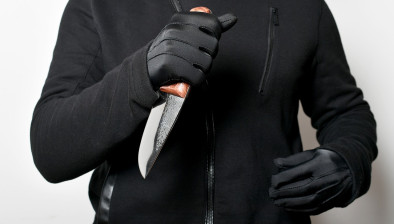Legal change to increase penalties for knife crime

Helen McEntee
Justice minister Helen McEntee has secured Cabinet approval to amend legislation in order to increase sentences for a number of knife-related crimes.
Crediting her colleague James Browne for his work with the Anti-Social Behaviour Forum and its subgroups, which resulted in these proposals, Ms McEntee said: “There is a difference between carrying a knife and carrying with intent. The current maximum sentence for serious offences - possession of a knife with intent to unlawfully cause injury, trespassing with a knife, and producing a knife to unlawfully intimidate another person - do not appear to be proportionate when compared with simple possession of a knife, and yet they carry the same maximum sentence of five years.
“That is why we are changing the maximum penalty for these serious knife crime offences, clearly targeting persons who have a willingness and intent to use knives, to a 7-year maximum sentence. We are also increasing the penalty for importing and selling knives and such weapons from 7 to 10 years. This sentence increase is in line with other recent increases I have made, including doubling the maximum sentence for assault causing harm and increasing the maximum sentence for conspiracy to murder to life.”
Ms McEntee also outlined a number of changes to strengthen the use of ASBOs (anti-social behaviour orders) which were also recommended by the Forum. This includes making it easier to issue an ASBO and better training for Gardaí to use ASBOs.
Commenting on work of the Forum, Mr Browne noted: “The Anti-Social Behaviour Forum has rightly noted the great work already being done, particularly in the area of Youth Justice. Protecting our young people from becoming involved in crime, including knife crime, is a top priority for the whole Government.
“The Government’s funding for youth justice services rose to €33 million this year. This sustained support is helping us to grow our Youth Diversion Network and to expand the services being offered to young people and their families. This work will benefit all our communities, not just now but into the future, as we invest in the future of our young people.”
Ms McEntee also updated her colleagues today on a number of other measures which are already being taken to tackle anti-social behaviour and wider crime.
They include:
- The deployment of a Proof of Concept for body-worn cameras for Gardaí in Dublin City Centre, Waterford, and Limerick in 2024. This will help to inform the nationwide rollout of these vital pieces of equipment to all Garda members.
- Introducing Facial Recognition Technology in a number of limited and defined circumstances as a tool to search evidence in the most serious of cases, with legislation published before the summer recess.
- Stronger Garda Powers resulting in the nationwide seizure of 44 quad bikes and 133 scramblers by An Garda Síochána from 1 January 2023 to 5 February 2024.
- Providing the funding necessary to strengthen the equipment available to An Garda Síochána for public order policing, including the deployment of tasers and stronger incapacitant spray.
- The introduction of Community Safety Partnerships around the country, to develop Community Safety Plans for every area.
- Continued expansion of youth justice and youth diversion members, including interventions for typically hard-to-reach young people and early interventions for 8-11 year olds who may be at risk of becoming engaged in criminal activity.
- Working to commence the Criminal Justice (Engagement of Children in Criminal Activity) Act 2024 to criminalise the grooming of children into a life of crime.
- Proposing solutions to public order and anti-social “wicked problems” through the Local Leadership Programme which brings together local stakeholders in a structured manner.
She said: “Since my appointment as minister, we are taking a number of measures to tackle anti-social and other behaviour which cause serious concern in our communities. The Gardaí are using stronger powers, under the new road traffic legislation, to seize scrambler bikes and quads, which can do dreadful damage.
“We are determined to support Gardaí with better equipment. Body-worn cameras for Gardaí will begin their Pilot phase in Dublin City Centre, Limerick, and Waterford this year. Our increased funding for the expansion of youth diversion projects, alongside the rollout of the new community safety partnerships and the development of community safety plans across the country will further strengthen our communities and help protect our young people from falling into criminality.”









